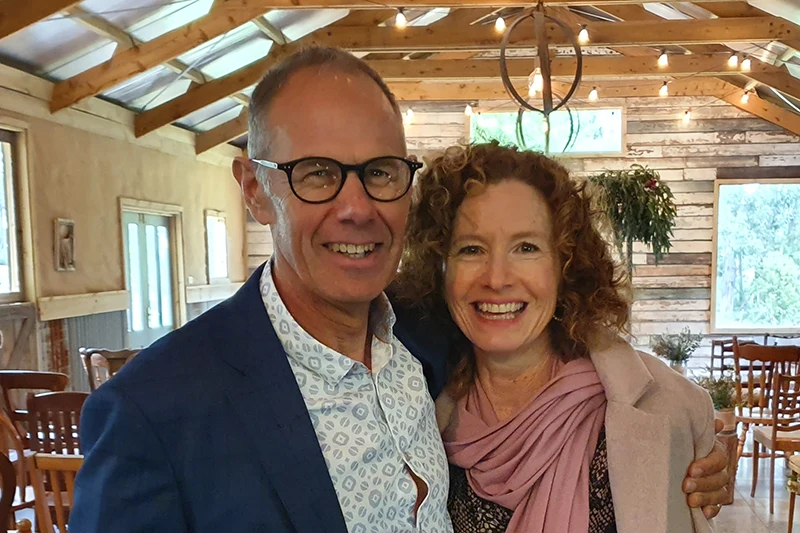It was such an important thing to do, it was such a positive experience.
Cardiac arrest survivor shares rehab lessons
Bruce Carter thought he was fit and healthy.
In 2017, he was 57 and riding his bike up to 450 kilometres a week, with his 18 year-old son Maccie. Maccie had just competed in the World Junior Cycling championships and was training to join a French cycling development team.
Towards the end of 2017, Bruce had some health issues and saw two doctors. They said he was fit and healthy, didn’t have an ‘at risk’ profile and it was likely he had indigestion.
“I was given some medication for gastric reflux and that didn’t help,” Mr Carter said.
“I was getting worse and worse and worse, without really understanding what the problem was.”
At the end of November, Bruce’s wife Sarah was woken by his groans, an hour after they had gone to sleep.
“He was groaning like he was having a bad dream, so I just lay there and waited, as I thought he would stop groaning,” Mrs Carter said.
“I shook him to wake him up and he didn’t feel right, he felt heavy.”
Sarah rang Triple Zero and during the call it became clear that Bruce’s heart had stopped beating.
“The calltaker was amazing. Maccie helped get Bruce onto the floor and I started giving him CPR.”
Bruce was revived and taken to hospital.
“I didn’t break down until I got back home from the hospital and wondered what does this mean for our lives?” Mrs Carter said.
A week later, Bruce was discharged from hospital to begin his recovery. He initially decided against cardiac rehabilitation.
“I remember going there thinking this is not me. I’m young. I’m fit. Cardiac rehab is something that other people do, not people like me,” Mr Carter said.
Thinks weren’t back to normal and within six weeks, he was admitted to Epworth Richmond to have an abnormal heart rhythm corrected by Professor Tony Walton.
Five months later, when Bruce experienced more discomfort while overseas, he thought it might have been indigestion, not his heart.
When he returned to Australia, he was again admitted to Epworth Richmond and had more stents inserted into coronary arteries, including one artery that had a 90% blockage.
Bruce was referred to the Epworth heart and cardiac rehabilitation program. The program brings together a range of health professionals including a cardiac rehabilitation physician, cardiac nurses, physiotherapists, exercise physiologists, occupational therapists, dietitians and psychologists.
Mr Carter is glad he undertook the cardiac rehabilitation.
“I think physically because I was struggling so badly with a major narrowing of a coronary artery I was depleted, and mentally I wasn’t in a good way. I was frustrated and depressed and felt vulnerable.”
“It was such an important thing to do, it was such a positive experience,” he said.
“Sharing it with others helps. It was great to hear stories from other people in the room.”
Sarah said the rehabilitation taught them both a lot.
“His diet was already pretty good but it helped understand how the heart works, what can affect it, the impact of stress and the connection between head and heart,” Mrs Carter said.
Bruce has now taken up hydrofoil kitesurfing, and features in a new video to promote cardiac rehabilitation. The video was made possible thanks to a generous donation to the Epworth Medical Foundation.




